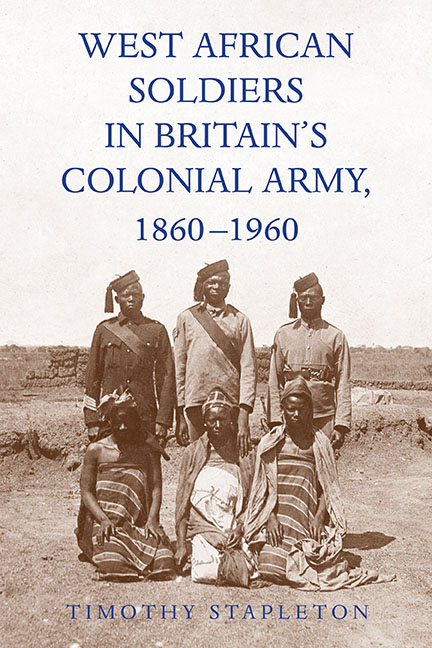Book contents
8 - Flogging
Published online by Cambridge University Press: 07 October 2022
Summary
British colonial forces in Africa and other parts of the world relied on violent punishment or more commonly the threat of violent punishment to maintain discipline among the rank-and-file. Racism informed this practice as during the early nineteenth century, when flogging applied as a punishment to all British troops and could mean hundreds of lashes, the black soldiers of the WIR were more likely to be beaten and beaten more severely than their white colleagues. Britain established its locally recruited West African paramilitary forces during the late nineteenth century around the same time that the metropolitan British Army outlawed official corporal punishment. Nevertheless, Britain's African forces continued to use flogging as a disciplinary instrument among African soldiers until the Second World War. The existence of corporal punishment within military law in British Africa reflected white officers’ racist attitudes towards African troops but also the existence of flogging within the broader legal frameworks in these colonies. Within the system of indirect rule, Britain administered most of its African territories through a network of African traditional leaders governing by local customary law that often included options to inflict corporal punishment on offenders. During the first half of the twentieth century, one of the main differences between the experience of British metropolitan and West African soldiers was that many of the latter experienced or witnessed formal flogging.
In Britain's colonial African army, flogging represented one of the most serious among a number of punishments including imprisonment, fines, demotion, and dismissal available for authorities to impose on African soldiers convicted of violating aspects of military law. Most soldiers charged with offenses appeared before their commanding officer, who possessed the authority to deal summarily with a range of offenses but those accused of the most serious crimes faced trial by court-martial, presided over by a panel of officers with greater powers of punishment. Flogging represented both a legal punishment and an element of military culture performed as a ritual, whereby an African NCO using a hide whip or cane inflicted an assigned number of lashes on an offending soldier who had to lie on the ground before his entire unit. It represented a form of humiliation and deterrence. Reinforcing the racial hierarchy of these colonial units, white officers determined and observed punishment but remained aloof from its violent implementation.
- Type
- Chapter
- Information
- West African Soldiers in Britain's Colonial Army, 1860-1960 , pp. 259 - 271Publisher: Boydell & BrewerPrint publication year: 2021

